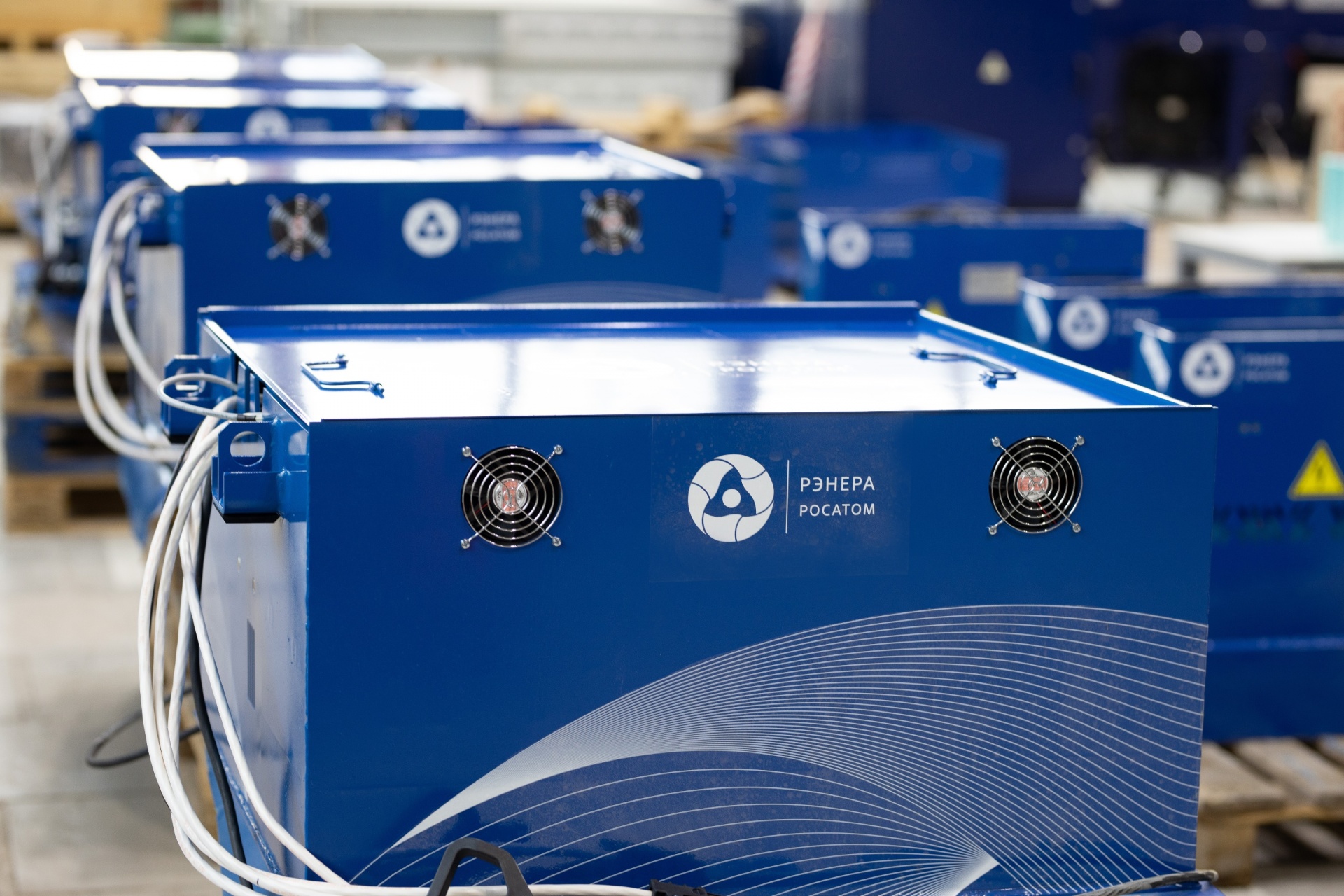
A subsidiary of Russian state-owned nuclear technology and electric utility company Rosatom, will establish domestic lithium-ion battery cell and manufacturing facilities, following a deal to acquire 49% of South Korean company Enertech International.
Enertech International makes components for lithium-ion batteries as well as complete systems, from electrodes to lithium-ion cells and energy storage systems. Rosatom’s energy storage division, RENERA, has signed agreements with Enertech in line with the parent company’s strategy to develop non-nuclear business interests.
Through the deal, a facility for manufacturing li-ion cells and systems will be constructed in Russia by 2030, with production capacity of “at least 2GWh,” Rosatom said, and the first stage of production is set to begin in 2025. According to Rosatom, Russian-made batteries will be used in electric vehicles including buses and cars, as well as for power grid applications and other uses.
Rosatom said that the ability to make batteries in Russia for electric transport would help reduce the country’s reliance on imports and could lower costs, perhaps spurring on widespread use of electric transport made in Russia. Meanwhile the company said in a press release that it has identified the advantages of lithium batteries for transforming the power sector: offering uninterrupted power supply and enabling storage of electricity from off-peak to peak periods as well as helping stabilise grids as the reliance on variable renewable energy grows.
Try Premium for just $1
- Full premium access for the first month at only $1
- Converts to an annual rate after 30 days unless cancelled
- Cancel anytime during the trial period
Premium Benefits
- Expert industry analysis and interviews
- Digital access to PV Tech Power journal
- Exclusive event discounts
Or get the full Premium subscription right away
Or continue reading this article for free
About two dozen large-scale lithium-ion battery production sites are being developed or constructed across neighbouring European countries and the European Union has strongly supported the emerging industry with billions of Euros in support.
Rosatom completed the incorporation of RENERA in October last year, having launched it initially through another subsidiary, TVEL, which is the state-owned energy giant’s nuclear fuel unit. Enertech International meanwhile was founded early this century as a videotape and compact disc manufacturer which pivoted into electrode coatings for lithium-ion batteries.
It lists a number of nickel manganese cobalt (NMC) large format cell types in its technology roadmap, moving from hard carbon anodes in its first generation to graphite and targeting silicon anodes in its advanced plans. It currently manufactures energy storage systems (ESS) ranging from 15kWh capacity to 115kWh.





